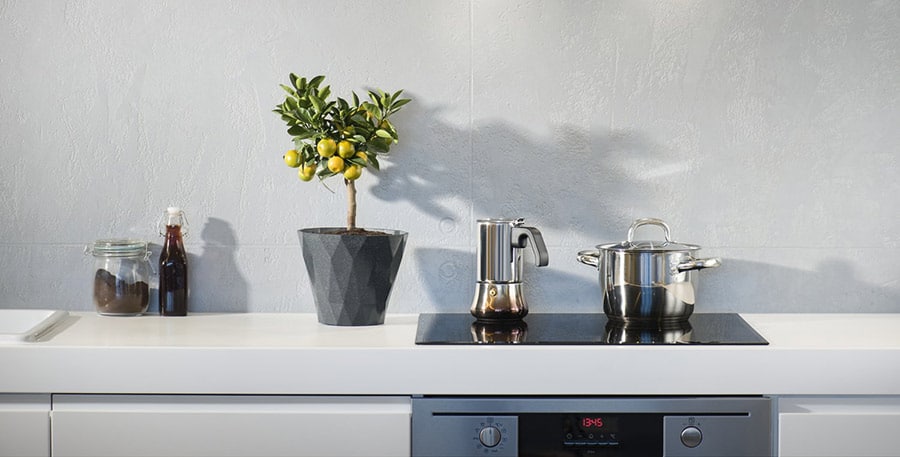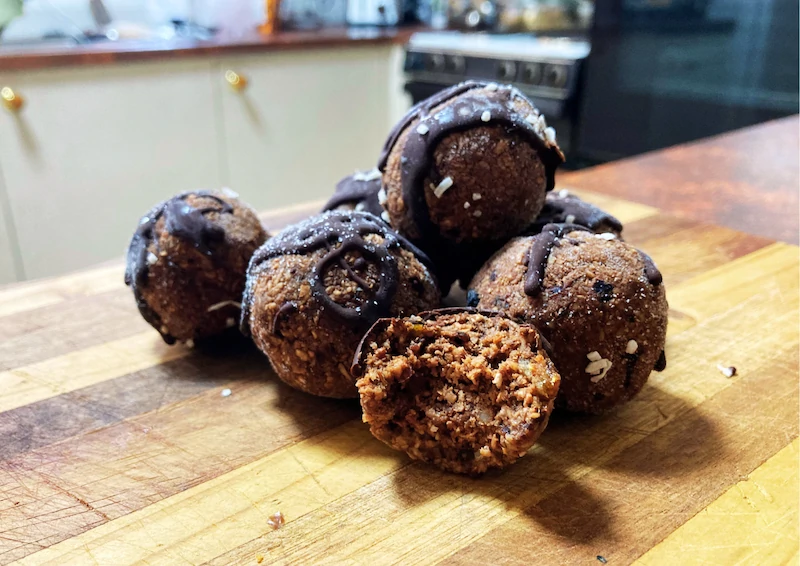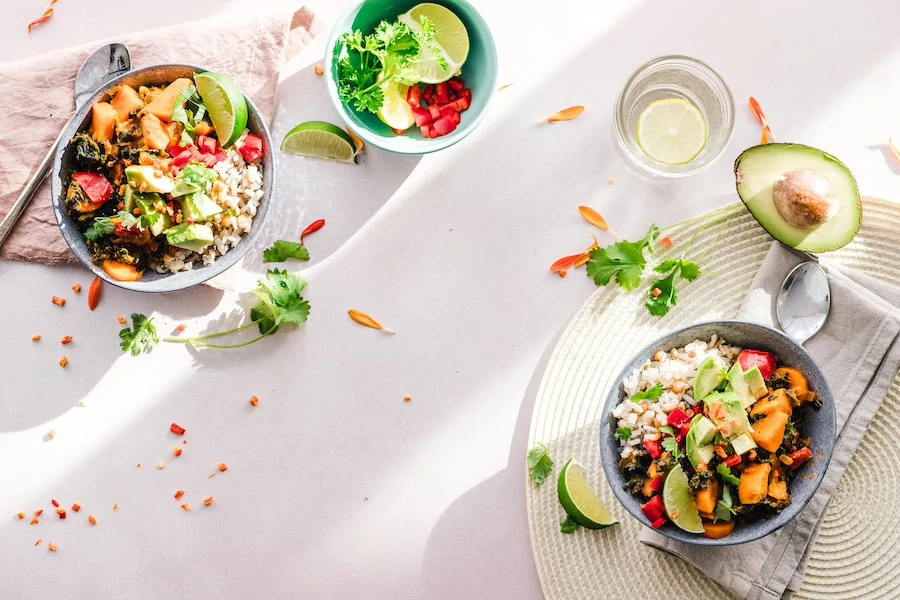
The kitchen is often the most wasteful part of the home. From the food we cook to the chemicals we clean with, there are many opportunities to improve upon for a more sustainable and eco-friendly kitchen.
So, why should you use eco-friendly kitchen products? In addition to protecting the environment, using eco-friendly kitchen products can reduce your overall waste and help save you money, while promoting a healthy and sustainable lifestyle for you and your family.
It may be clear that using eco-friendly kitchen products will be doing your part in helping promote a sustainable environment, but I’d like to share with you even more reasons you may not have initially thought of.
1. Store Your Food Safely
Many people eat organic food to reduce their exposure to any potentially toxic chemicals. But are you storing your food safely? Most standard plastic storage containers contain BPA or Bisphenol A which is a chemical commonly found in plastics. Research has shown that BPA can seep into our foods and beverages. BPA has been linked to affecting the reproductive systems of laboratory animals. The full effects on human exposure are still unknown, however, it’s not a risk that consumers are willing to take.
Many brands now offer food storage containers that are made from eco-friendly materials over conventional plastic. Look for reusable containers that are made from stainless steel, glass, or food-grade silicone. This will prevent any potentially harmful chemicals from leaching into your food. Food containers made from eco-friendly materials are reusable and more durable than plastic, standing the test of time through many dishwashing cycles without eroding or wearing down. If you are on a tighter budget and not looking to spend much, nothing beats reusing a trusty mason jar.
2. Save Your Money
Some eco-friendly products may seem more expensive up front, but in the long run, they will save you money. By swapping out your traditional paper towels (which a family of four can burn through quickly) for reusable paperless towels or dishcloths, you won’t have to go out and buy another pricey brick of excessively packaged paper anytime soon. You will also be doing a big favor to the planet by saving trees.
A key feature of eco-friendliness is reusability. By having products that are reusable, more durable, and longer-lasting, you won’t have to continue spending your money on it every time you go grocery shopping.
3. Promote a Healthy Lifestyle
Adopting an eco-friendly kitchen means you are making a conscious effort to prevent your exposure to toxic chemicals in food products. You may already be eating an organic and natural food diet and wish to carry this into the kitchen.
An eco-friendly lifestyle in the kitchen is not just for you, but also for your family. It can be a valuable teaching lesson for children to learn the importance of being healthy in the food they eat, the amount of waste they produce, and adopting an eco-friendly mindset.
4. Reduce Your Plastic Waste
It’s no secret that plastic waste is severely damaging to the earth and its waterways. According to Our World In Data, in 2015 it’s estimated that 55% of global plastic waste was discarded into landfills and only 25% recycled, with the final 20% incinerated. Do you buy plastic that says it’s recyclable on the package? Chances are it’s not completely recyclable. This will depend upon the resin identification code (RIC) number, which will tell you whether or not your plastic item is recyclable.
If a brand or product is marketed as being eco-friendly, it will not be excessively packaged with plastic and instead, it should be packaged minimally with biodegradable, compostable, or recyclable materials.
Single-use plastics should be swapped out for longer lasting reusable alternatives. Switch out your traditional plastic zip-lock sandwich bags for sustainable and reusable beeswax wraps. If you still have the need for single-use items such as cutlery, plates, or cups for perhaps a party, look for biodegradable or compostable options.
Recently, many municipalities have instituted bans on single-use plastic shopping bags in the grocery store. Make the simple to switch to grocery shopping “plastic bag-free” by using a reusable shopping tote or produce bag. I find this also limits the number of items I will buy too!
5. Safely Cook Your Food
Do you have cookware with Teflon? A convenient invention for an amazing non-stick surface when cooking. Not so great for truly healthy and safe cooking though. Teflon is a synthetic polymer, that when overheated, can break down and release toxins. It may not harm you initially, but the long term effects of this are unknown by scientists and I’m not ready to find out.
The active chemical used to make Teflon, PTFE (polytetrafluoroethylene) causes deaths in birds. Whereas the other chemical used to make Teflon, PFOA (perfluorooctanoic acid) has been shown to interfere with growth, development, and reproduction in laboratory animals. The full risks on humans are still unknown, but I’m saying “no thanks” to both, I’ll preserve my health along with the birds!
Fortunately, safer cookware alternatives exist. Cast iron pans are famous for their ability to build up oil residue creating a natural non-stick effect. They will also help you add iron to your diet. They require a bit more maintenance and cash but can last a lifetime.
Stainless steel or ceramic are two of the safest materials to use when cooking as they won’t allow any toxic chemicals to seep into your food. Some brands also produce eco-friendly non-stick pans that don’t have PFOA but do not have the proven durability of cast iron.
6. Reuse, Reuse, Reuse
Whether you are at home sipping your favorite drink, or on the go with a coffee, there are long-lasting reusable alternatives. Most water bottles and coffee mugs are made with reusable eco-friendly materials and come in fun styles and colorways. Both glass and stainless steel are popular options that are durable and long-lasting for your beverage of choice.
The single-use plastic straw is on its way out! There is still a long way to go, but more and more consumers are saying “no to the straw” now. Many local establishments have banned the use of single-use straws. Environmentally conscious consumers can use reusable straws that come in a range of eco-friendly materials such as glass, stainless steel, copper, silicone, and even bamboo. A portable and yet affordable switch that can go a long way when used during your daily coffee routine or downtime at home.
7. Green Clean Your Kitchen
If you are familiar eco-friendly living in the home and kitchen, you may have heard about VOCs or volatile organic compounds. Found in many commercial cleaning products, their fumes are hazardous causing headaches and respiratory irritation, which can cause a laundry list of health problems. When looking at the ingredients label, steer clear of products that contain ammonia, chlorine, or petroleum-based chemicals. If you can smell the artificial chemical scent in the air, be aware that you are inhaling VOCs.
The good news is that many brands are now offering eco-friendly cleaning products that are all-natural and free of any potentially hazardous VOCs. Using eco-friendly dish soap will prevent any harmful pollutants such as microplastics or petroleum-based chemicals from going down the drain and entering our waterways adversely affecting marine life.
Alternatively, you can still go all-natural and DIY by making your own homemade cleaning supplies. This is the most cost-effective way of cleaning your kitchen in a safe and eco-friendly way.
8. Protect Our Planet
By now many are aware of the global waste problem, however, this cannot be solved overnight. Living a busy life, I understand how easily one can lose sight of how much waste they are actually producing. From the food we eat and the beverages we drink, we are constantly consuming. However, you can easily do your part by starting to make simple eco-friendly swaps in your kitchen routine.
Plastic packaging is responsible for the majority of global waste, but it is up to you, the consumer, to make a conscious decision to avoid single-use plastic products. Each day approximately 8 million pieces of plastic find their way into our oceans. This wreaks havoc on marine life and waterways.
Final Thoughts
I hope this article has been able to inspire you with even more reasons for adopting an eco-friendly kitchen. I encourage you to start looking for innovative and thrifty ways you can become more eco-friendly not only in the kitchen but in other areas of your home. This way, a simple idea can slowly transform into a healthier and more sustainable way of living for both you and the environment.



